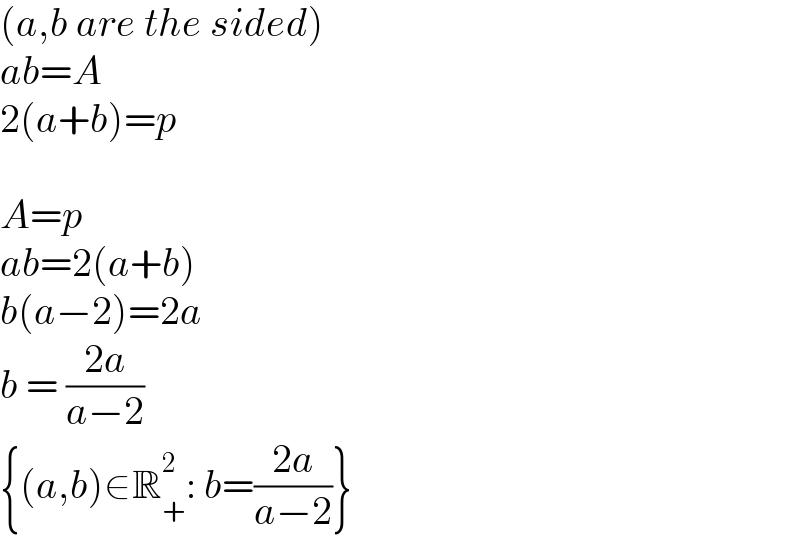
Question and Answers Forum
Question Number 182676 by yaslm last updated on 12/Dec/22

Answered by Acem last updated on 12/Dec/22
![If we consider that the sequare isn′t a special case of the rectangle, then the required rectangles are: ]0, 1[ ∪ ]1, +∞[_(ℓ) × 1_(w) ⇔ R^(+★, +1) _(ℓ) × 1_(w)](Q182677.png)
Answered by TheSupreme last updated on 14/Dec/22

| ||
Question and Answers Forum | ||
Question Number 182676 by yaslm last updated on 12/Dec/22 | ||
 | ||
Answered by Acem last updated on 12/Dec/22 | ||
![If we consider that the sequare isn′t a special case of the rectangle, then the required rectangles are: ]0, 1[ ∪ ]1, +∞[_(ℓ) × 1_(w) ⇔ R^(+★, +1) _(ℓ) × 1_(w)](Q182677.png) | ||
| ||
Answered by TheSupreme last updated on 14/Dec/22 | ||
 | ||
| ||